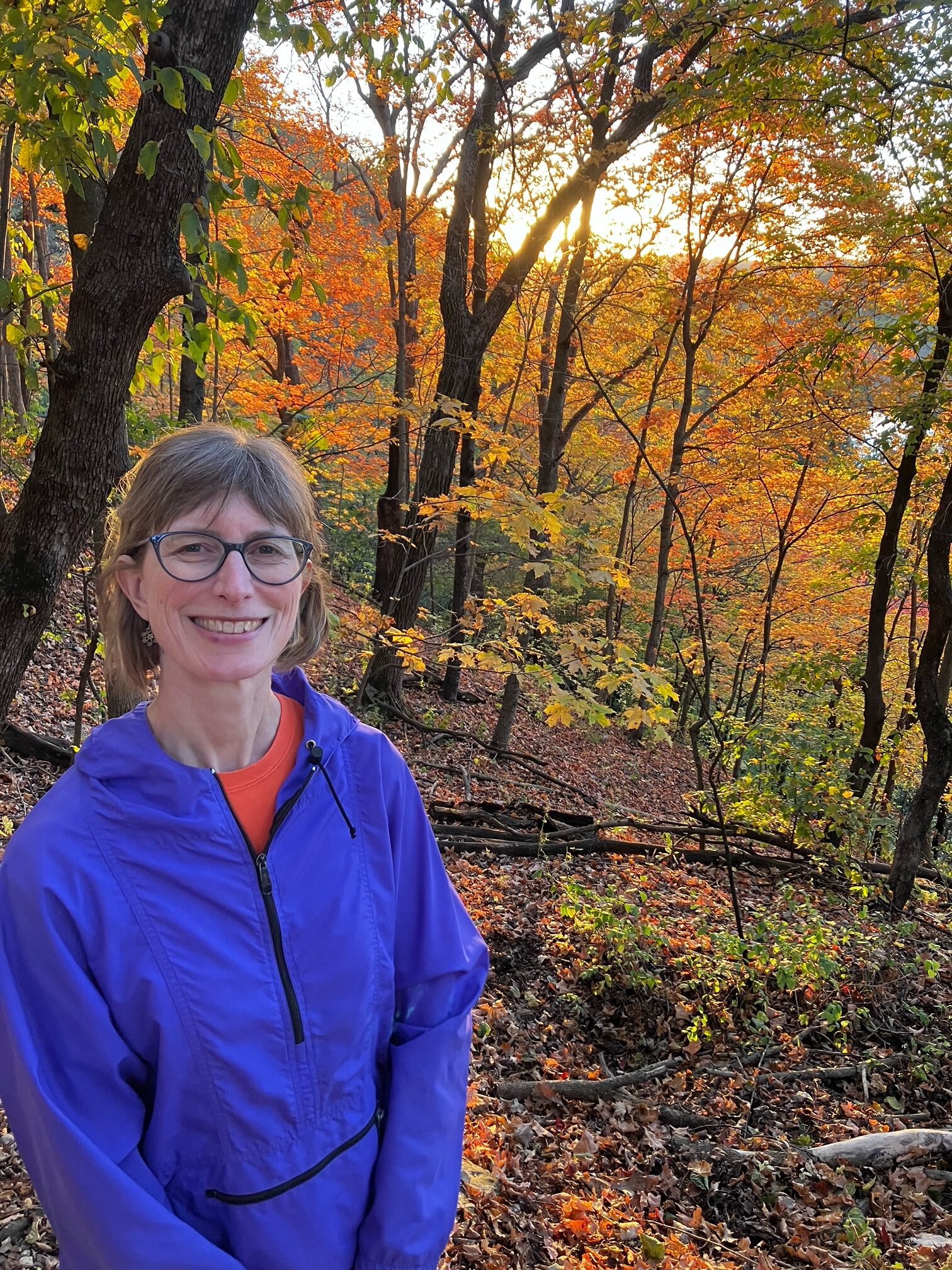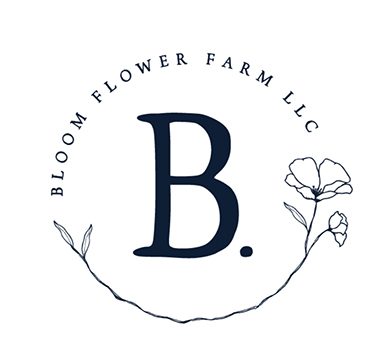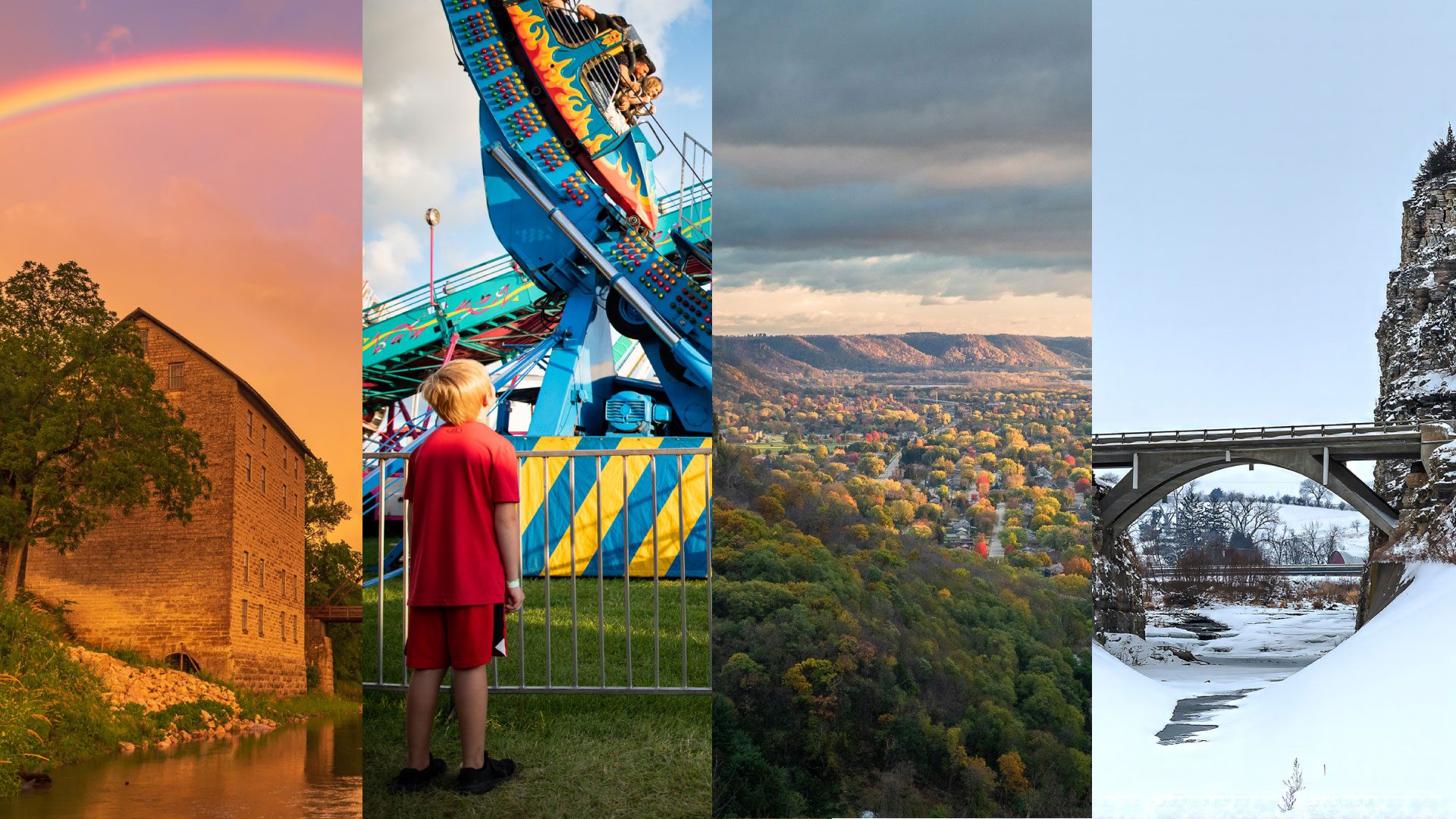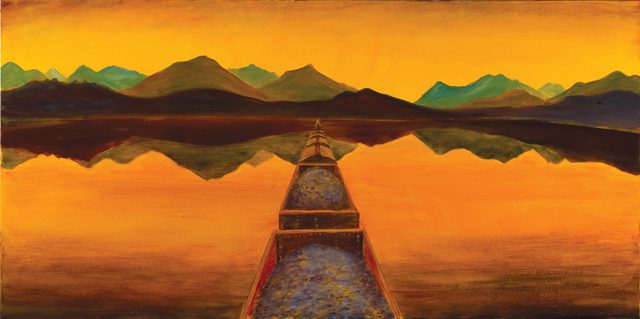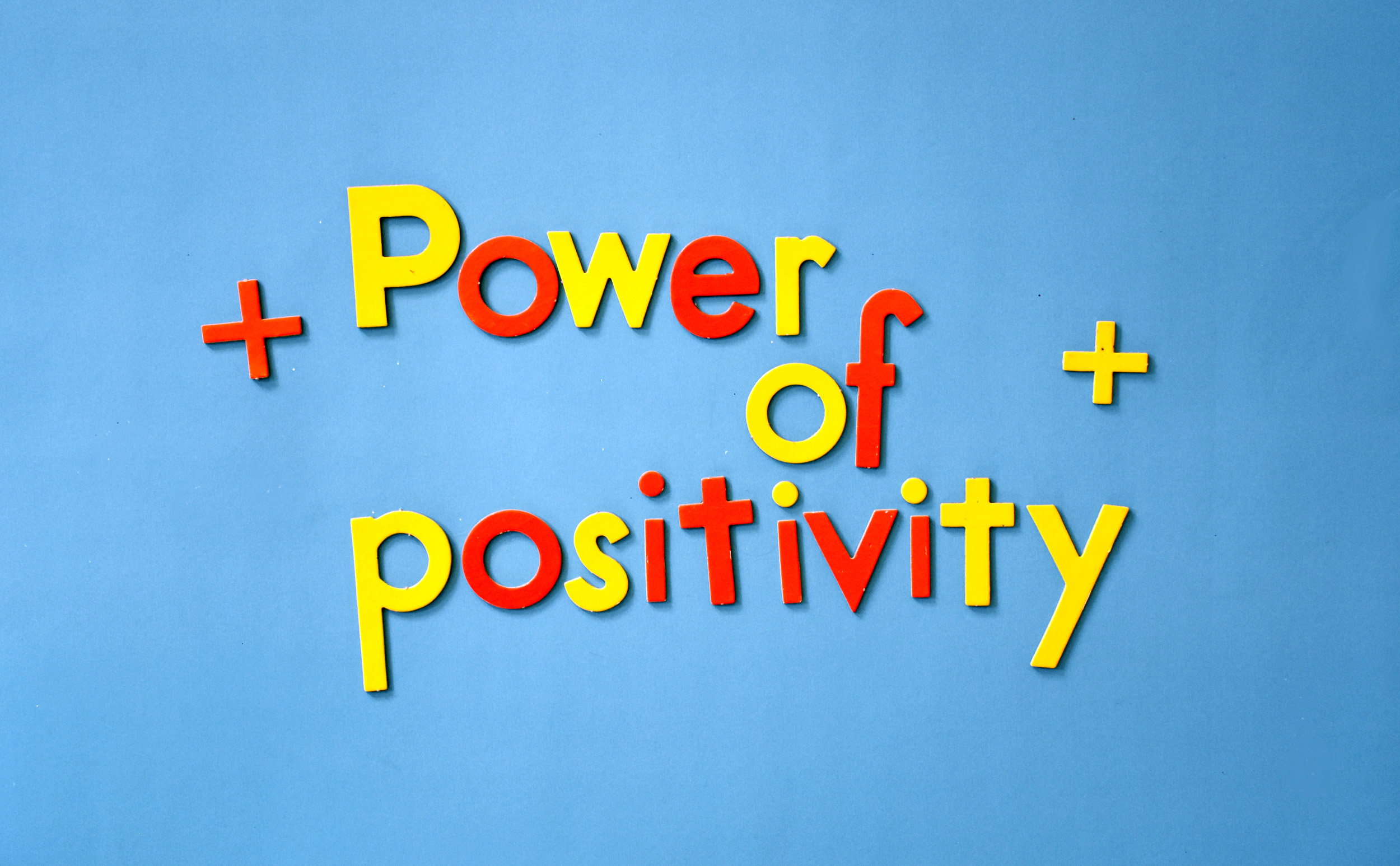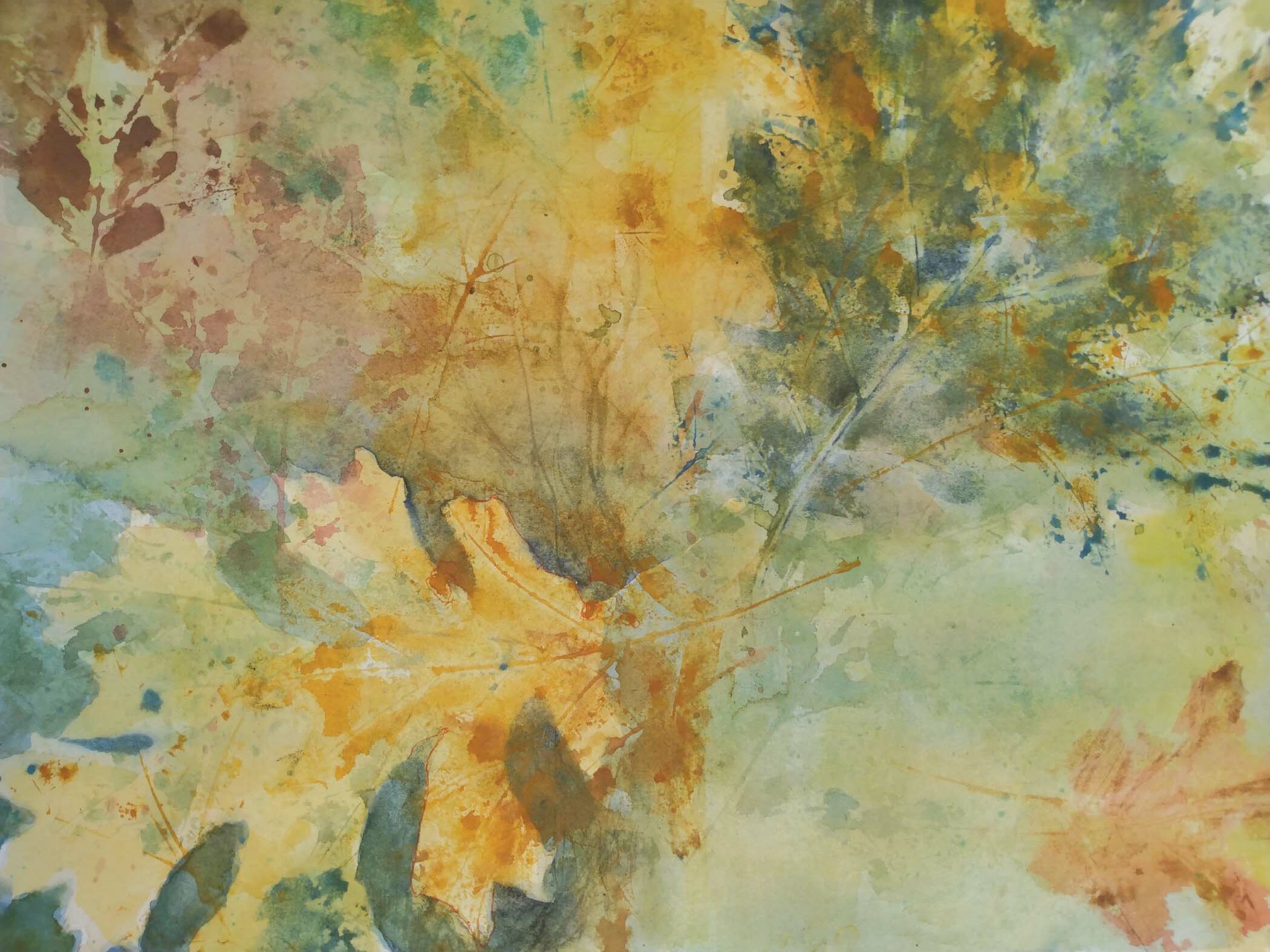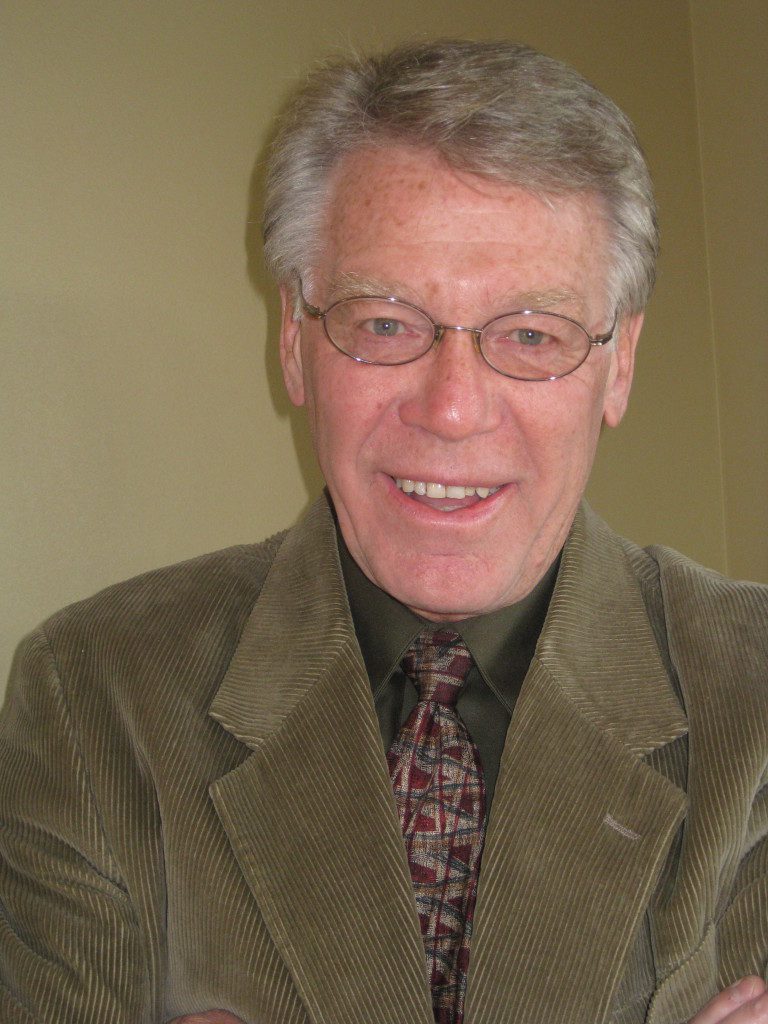Laura Demuth: A Beautifully Woven Life
In Laura Demuth’s cozy home, once a one-room schoolhouse, drapes woven in red, blue and tan cover closets and shelves; on walls, floors, chairs, and railings, woven coverlets and tapestries glow with geometric patterns or flowing designs of trees, leaves, and acorns.
Laura, whose last name is pronounced “DAY-mut,” is a weaver in the Norwegian folk tradition, a skill she has honed for four decades. She received a Gold Medal in Weaving in 2001 from the Vesterheim Norwegian-American Museum and Folk Art School in Decorah, and she has continued to grow her skills from there, constantly exploring new techniques and passing them along through her teaching.
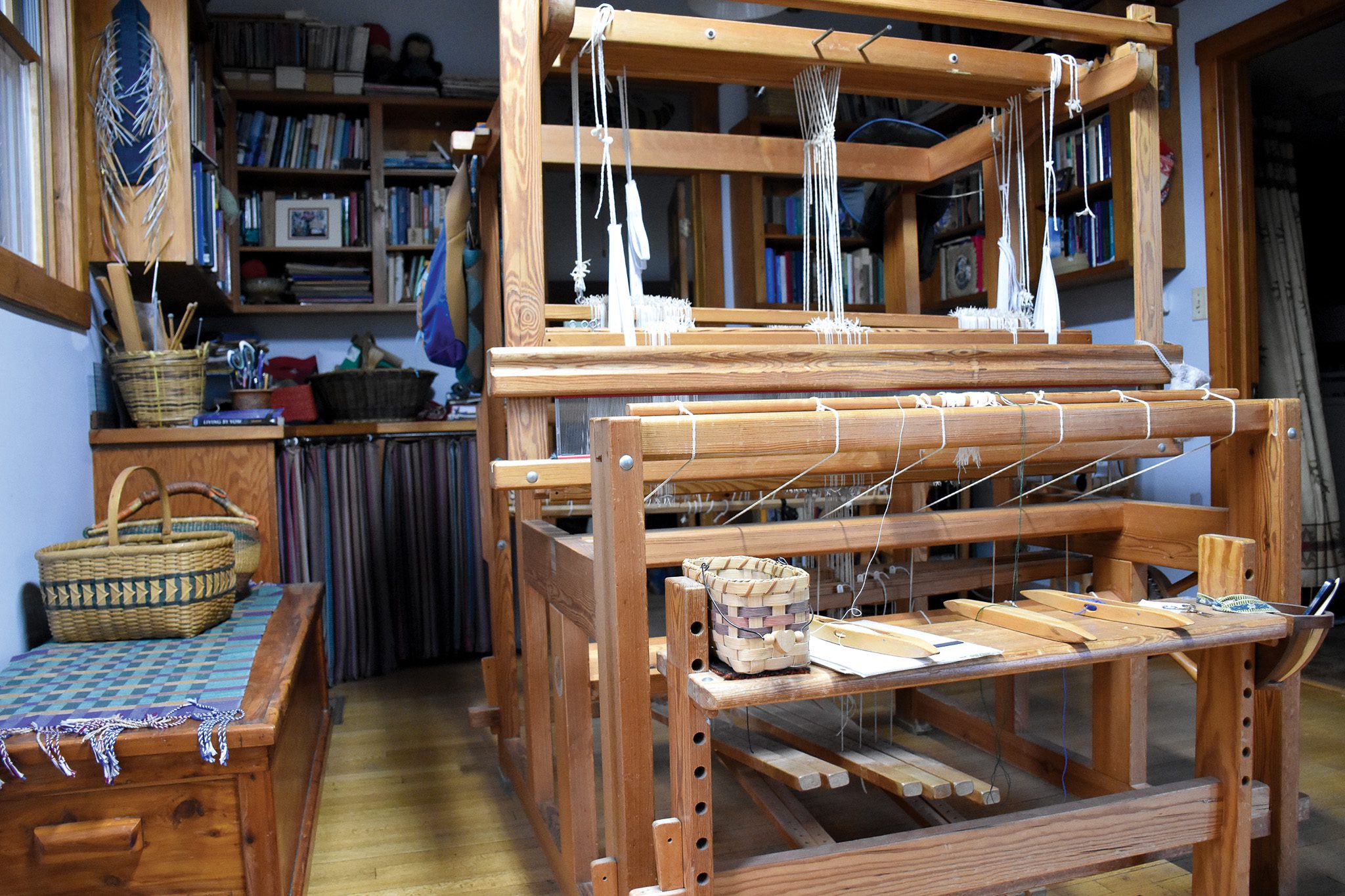
A floor loom occupies her home’s front room. Next to it sits a spinning wheel where Laura produces yarn from the wool of her own flock of sheep (and once, a single cranky llama). In recent years, Laura has converted an upper room into another center for her creativity. A tapestry loom, tucked under a skylight, perfectly fills this space, where her current project is unfolding: a landscape featuring the Yukon River. In the tradition of billedvev (“picture-weaving”), Norway’s tapestry technique, the design is based on a photo taken by her daughter, Bathsheba Demuth, an environmental historian at Brown University who specializes in the Russian and North American Arctic.
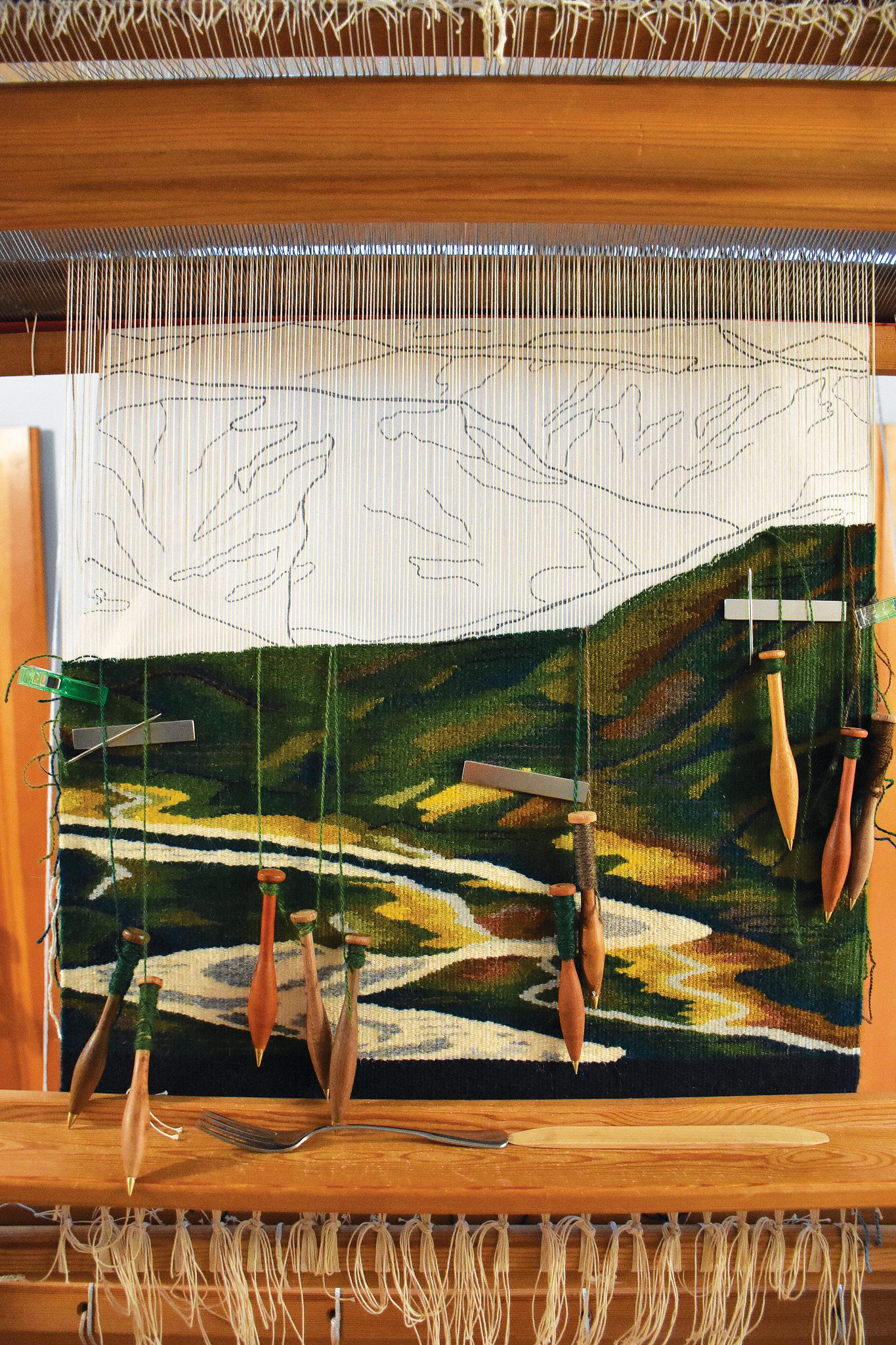
Laura is improvising subtle layers of greens, browns, golds, and reds to recreate the scene. “This is a new thing for me,” she says. “I’m just making it up as I go along.”
According to Laura, this has been her approach to weaving and to life in general. No lifelong goals, no grand plans. “I’ve meandered,” she says wryly.
Weaving Her Own Way
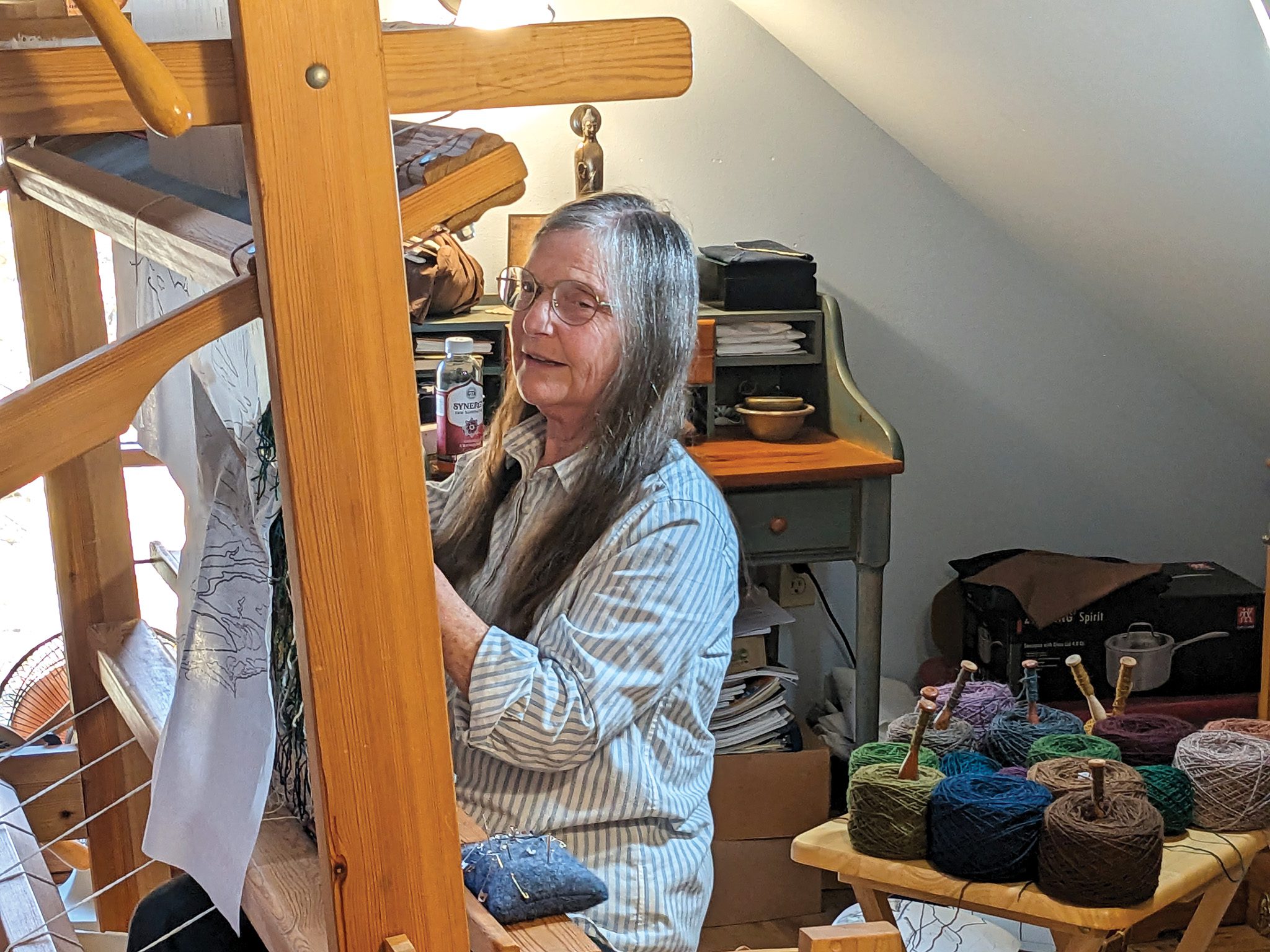
Laura came to Decorah in 1976 to attend Luther College. Her life has been Decorah-centered ever since, but growing up, she moved a lot. Her father worked as a civil servant for the U.S. Army, and the family relocated every few years to multiple states as well as to France and Germany.
Laura finished high school in Hanau, Germany, where the post chaplain was a Luther College alumnus. On his recommendation, she applied to the college, and when Luther gave her the best financial aid package of the colleges she had applied to, she chose it.
At Luther, she encountered two important influences. Number one was her husband, Steve Demuth of Pipestone, Minnesota. They were married in 1978.
A philosophy major, Laura’s interest in ethics led her to the second important influence: the work of Mahatma Gandhi, to which spinning and weaving were integral. “It was the first time I heard of spinning,” Laura says. The idea of spinning yarn and thread by hand and weaving one’s own clothing stuck with her.
While living in married student housing at Luther, she bought a loom and took a weaving class in the art department. She had grown up embroidering, knitting, and sewing. But weaving was completely new to her.
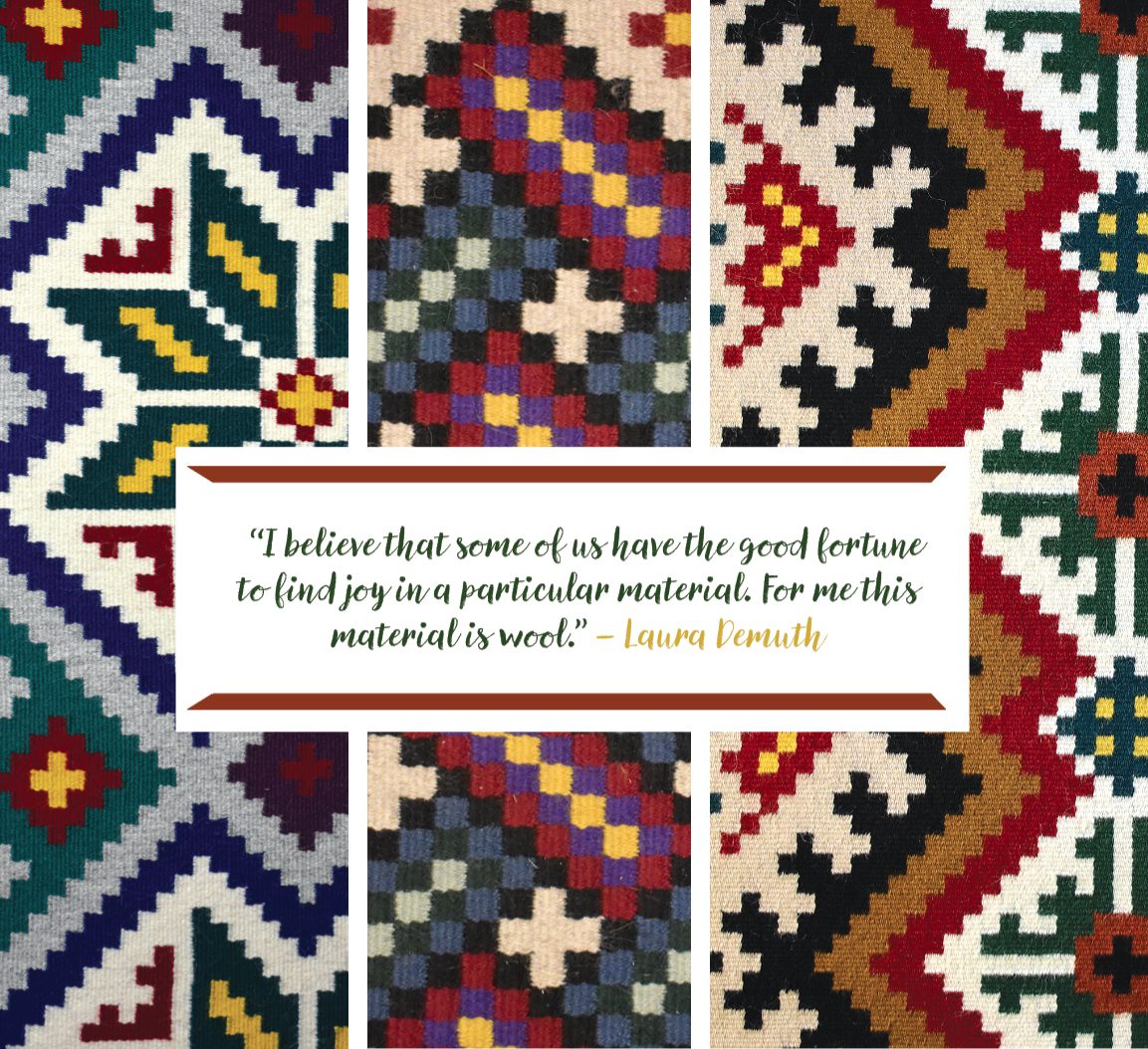
Meanwhile, Steve graduated. A math and physics major, he began working for Luther’s computer center while Laura worked on her degree. They both felt pulled to living in the country, though, so with only a semester of coursework left to go toward her BA, Laura dropped out. “It was a stupid thing to do,” she says. “But I had changed direction.”
Initially, they lived on a friend’s farm, and she took her floor loom along.
“I started weaving and making a lot of mistakes,” she says. She read books and magazines and got tips from fellow members of the Decorah Weavers Guild.
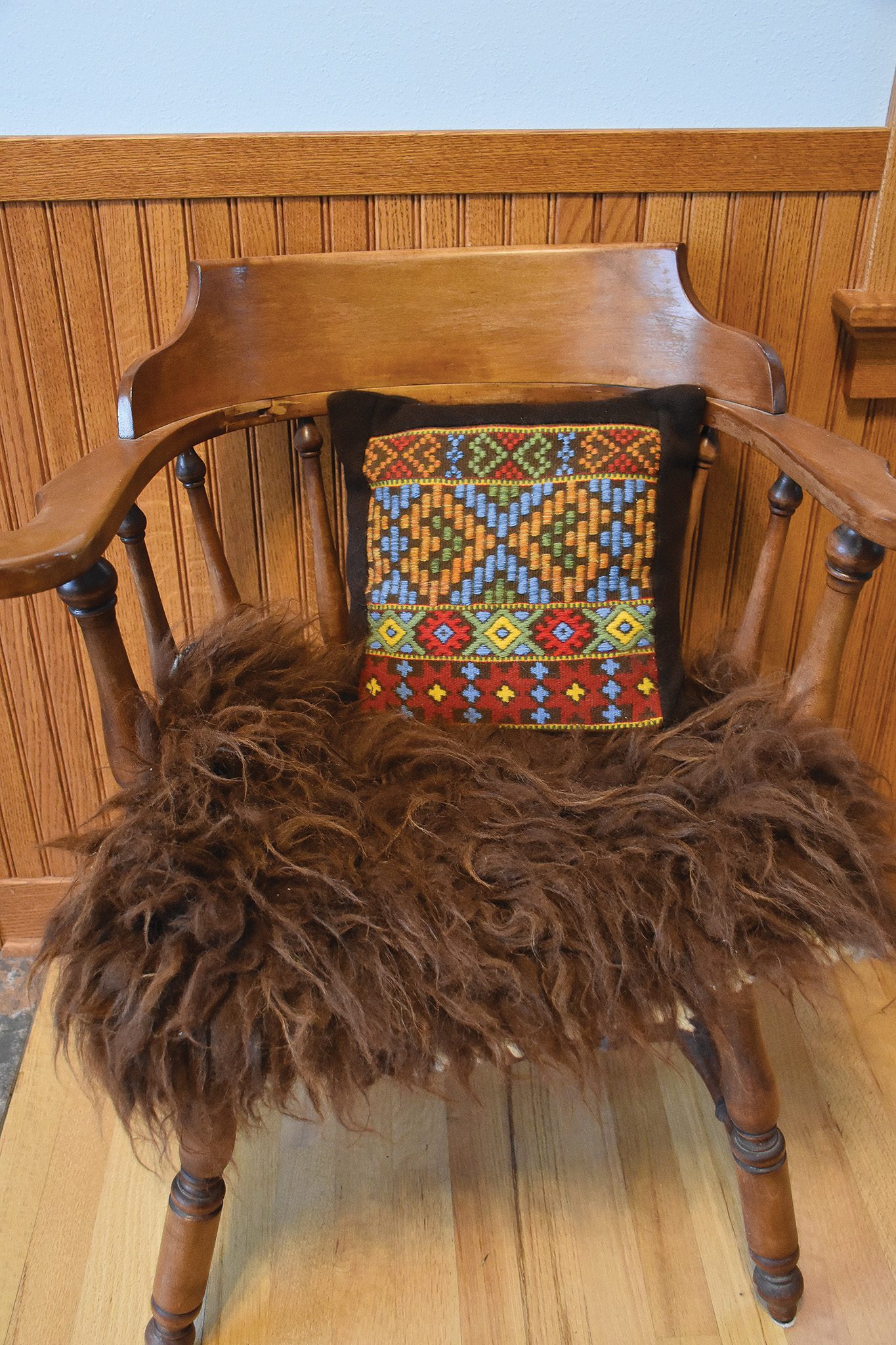
When Bathsheba was two, the family moved to their current acreage, north of Decorah. Her son, Gabriel, was born four years later. Laura home educated the kids, while Steve worked for Seed Savers Exchange and then for Mayo Clinic, where he was chief technology officer. (Following in his father’s footsteps, Gabriel lives in Rochester, Minnesota, and works for Mayo Clinic as a statistician for health care research.)
Although Laura began weaving thinking she would earn money for the family, that idea fell by the wayside. She couldn’t imagine how much she would have to charge for the labor and the yarn that goes into her blankets and tapestries.
“I didn’t see how hard it was going to be to sell things and make a living at it. I’m not an entrepreneur and not a salesman.”
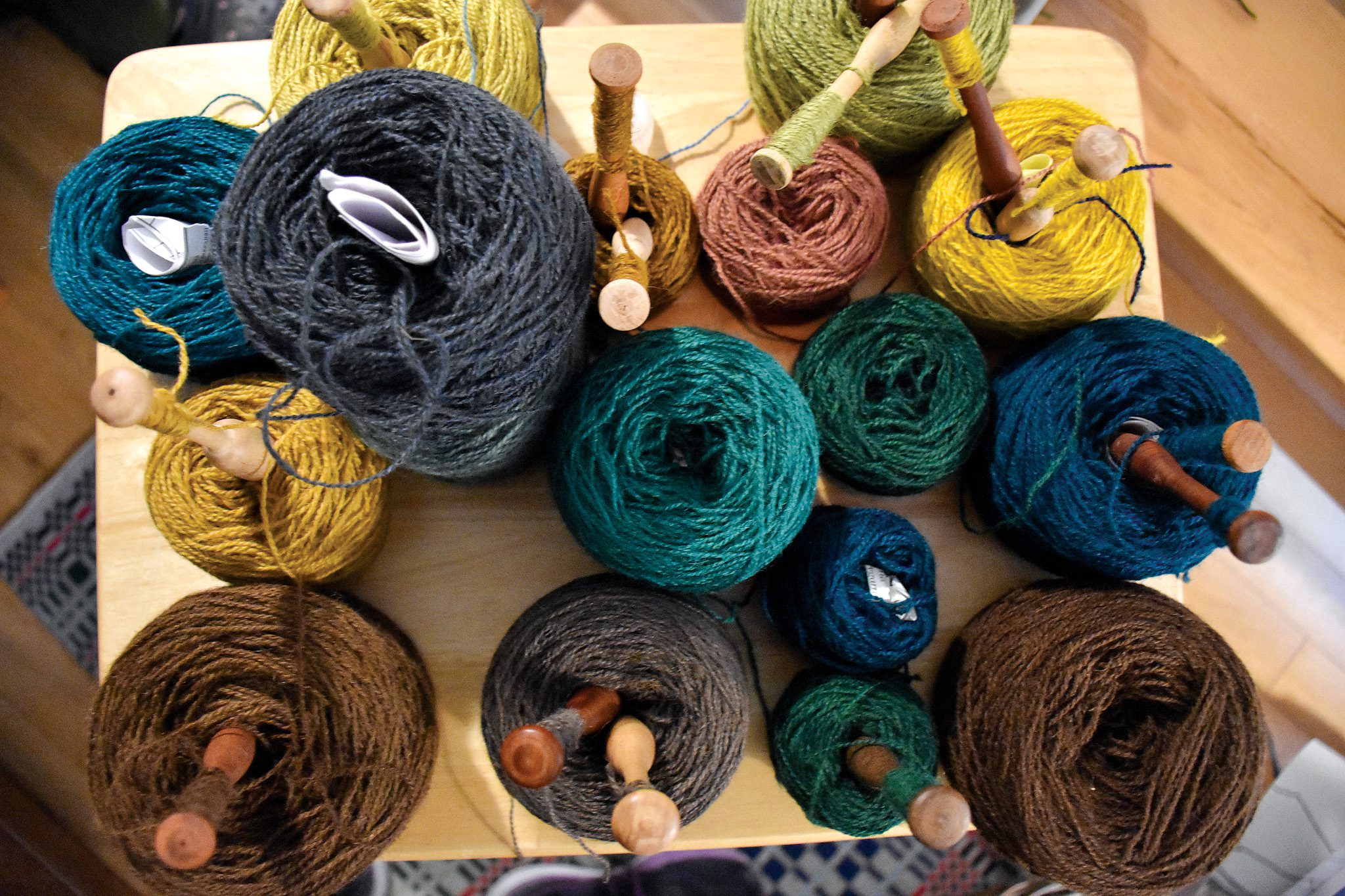
Yet, she committed to a hand-woven life, nonetheless. Today, she says in wonder, “We bought 40 bred sheep when I was nine months pregnant. It was crazy!” These sheep were Corriedales, a New Zealand breed good for producing wool. Thus started a decades-long practice of shearing her own sheep, preparing the wool, and spinning her own yarn.
Eventually, they switched to a herd of Bluefaced Leicester, an English breed that is easy to handle and that has, in Laura’s words, “great fleece,” as well as working with that one temperamental llama – not so easy to handle. “She was a crank,” she says. “But now, I miss her.”
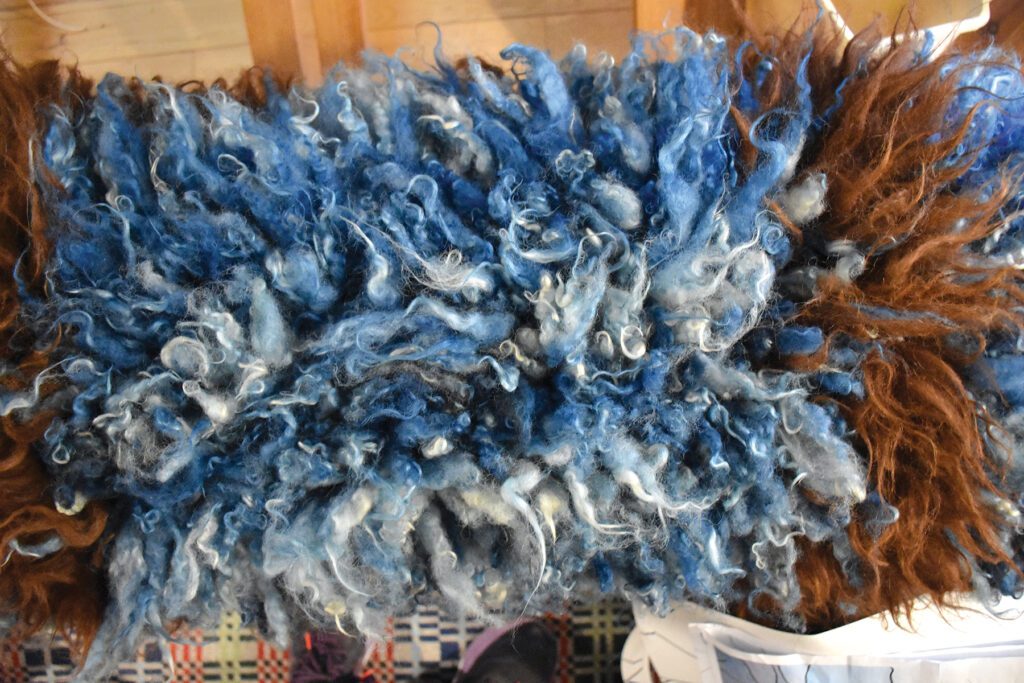
In the summer of 2023, the Demuths sold their sheep and llama. An adult Bluefaced Leicester weighs around 160 pounds, and they realized that shearing them had become too difficult. Laura misses her herd and expects they will acquire a smaller breed in the future.
She keeps pushing herself for two reasons, both ethical and educational.
“I think making your own clothing, or at least some aspect of your own clothing, can foster an appreciation for clothing itself; [it allows you] to gain some idea of the amount of labor and care and also intelligence that goes into clothing,” Laura says in a short documentary about her in Pioneer Public TV’s Postcards series. “It is actually a platform on which we can find expression and we can find joy.”
“Weaving has always been an intriguing problem. It’s a technical question that pushes your brain,” she adds. “It keeps you full with questions and possibilities.”
Vesterheim Connection
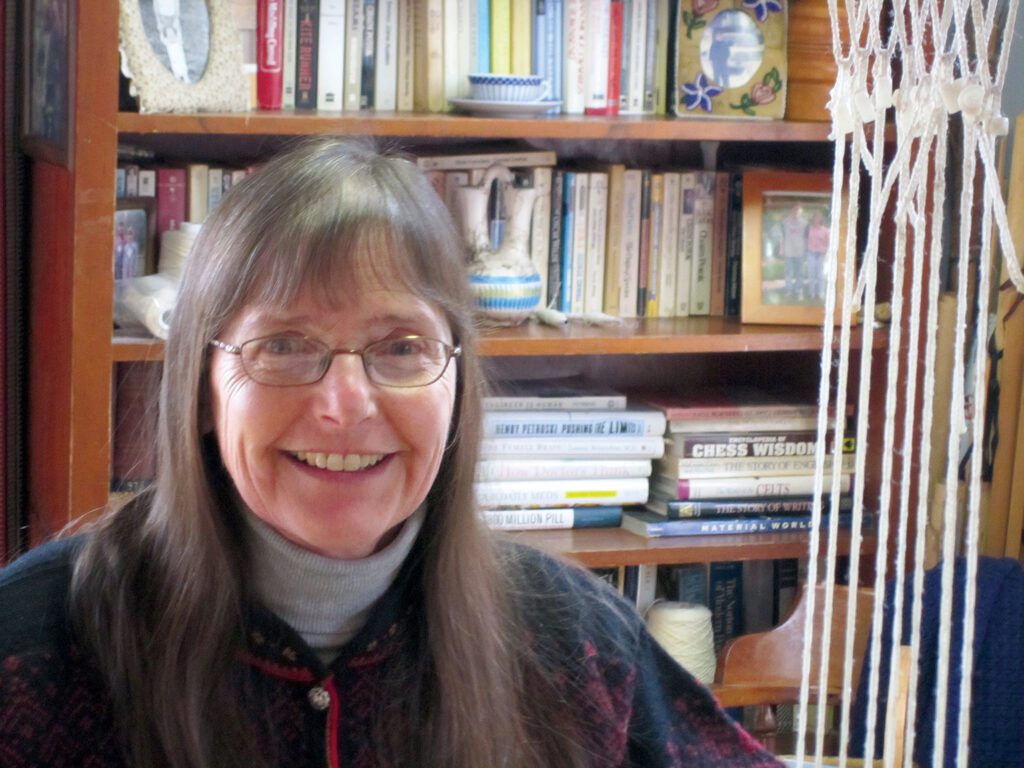
In 1993, Laura entered her weaving in the Vesterheim’s National Norwegian-American Folk Art Exhibition. This annual summer exhibition is designed to encourage and inspire folk artists to develop crafts rooted in Norwegian traditions.
The best pieces in the exhibition are recognized, and Laura won her first ribbon. “It was a double weave pick-up wall hanging that I made for my son,” she says. “He was very interested in the Vikings at the time, so the piece was filled with images of dragons, Viking ships, and runes.”
Laura started taking classes at the Vesterheim Folk Art School in 1998. “I knew the basic techniques, but not until I took classes at Vesterheim did I get better, because the teachers were masters,” she says. “They pointed me to the high-quality yarns, materials, and techniques.”
Her awards from the National Norwegian-American Folk Art Exhibition added up quickly, with ribbons in 1999, 2000, and the Gold Medal for Weaving in 2001. Only 25 gold medals for weaving have been awarded since 1982. She is highly respected among the local and regional community of weavers and has published in several magazines about weaving.
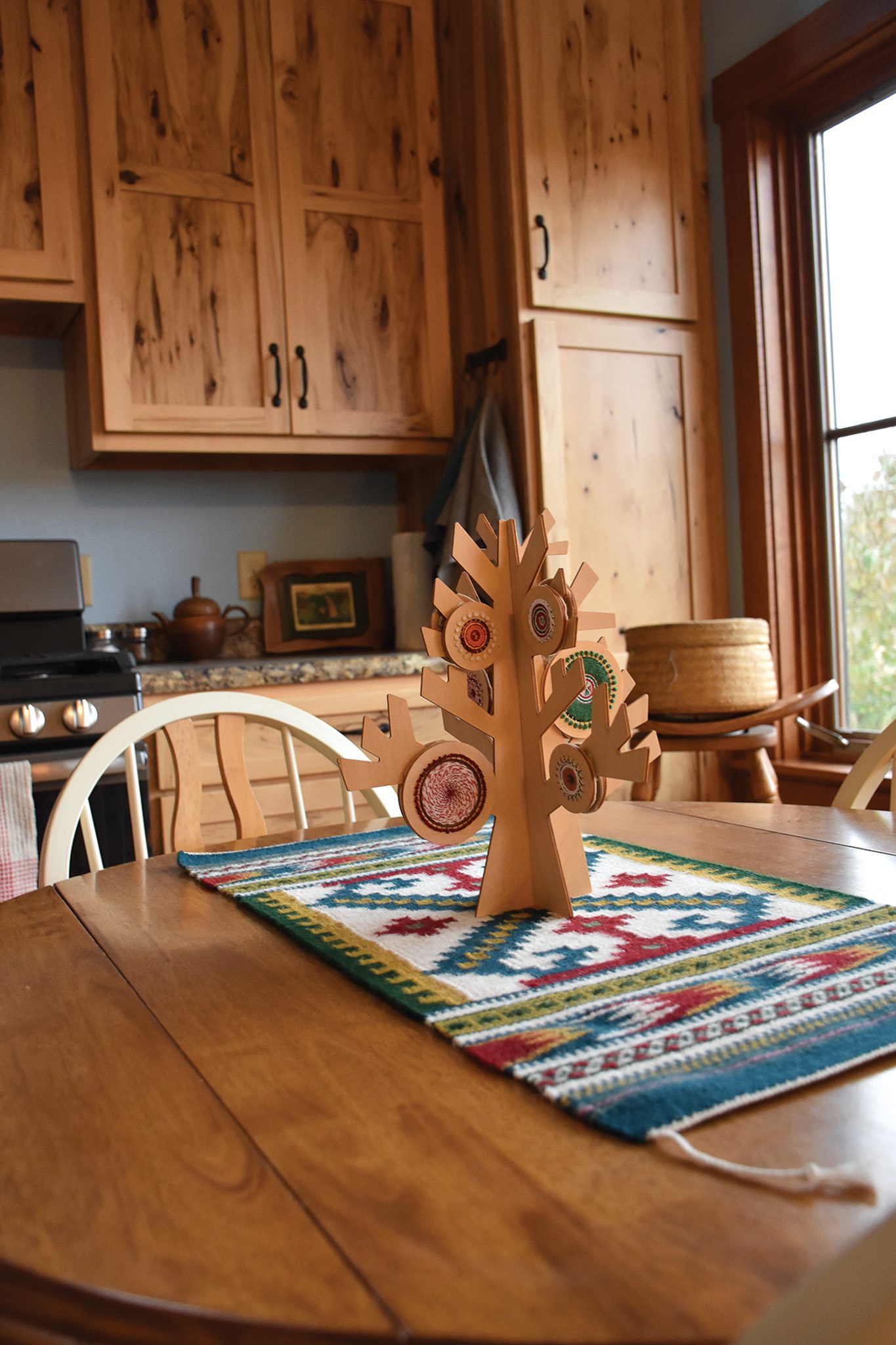
Teaching was the next obvious step, and for the past 20 years, Laura has taught weaving for Vesterheim’s folk art school. “Laura Demuth is a masterful artist and instructor,” says Andrew Ellingsen, director of folk art education. “When Vesterheim closed during the pandemic, Laura was one of the first instructors to take on the challenge of teaching folk art online. Whether she’s teaching online or in person, Laura celebrates and uplifts traditional Scandinavian weaving techniques while also bringing a warmth, a gentleness, and a calmness to the classroom. We are incredibly lucky to work with her!”
Finding and Giving Joy
In addition to becoming a master in Norwegian weaving, homeschooling her two children, and producing her own wool and yarn from her family’s flock of sheep, a visit to an open house at the Decorah Zen Center in 1999 started her journey to becoming a Zen Buddhist. She was ordained as a priest in 2013. “I’m this little mousy lady who lives in Iowa, and I have the chance to be a Zen Buddhist priest,” she marvels. “How weird is that?” She currently co-directs the Decorah Zen Center and assists with the practice and events at Ryumonji Zen Monastery, a training monastery in the Soto Zen tradition, in Allamakee County. And in 2006, she completed her bachelor’s degree in philosophy at Luther College after a decades-long hiatus.
If creativity and joy was the goal, Laura Demuth’s art and life show that she’s still “meandering” steadily in that direction. She has woven a beautiful life.
“I like things that are difficult,” she says. “I like to solve puzzles.”
Her husband, Steve Demuth, remarks simply, “She is an inspiring person.”
